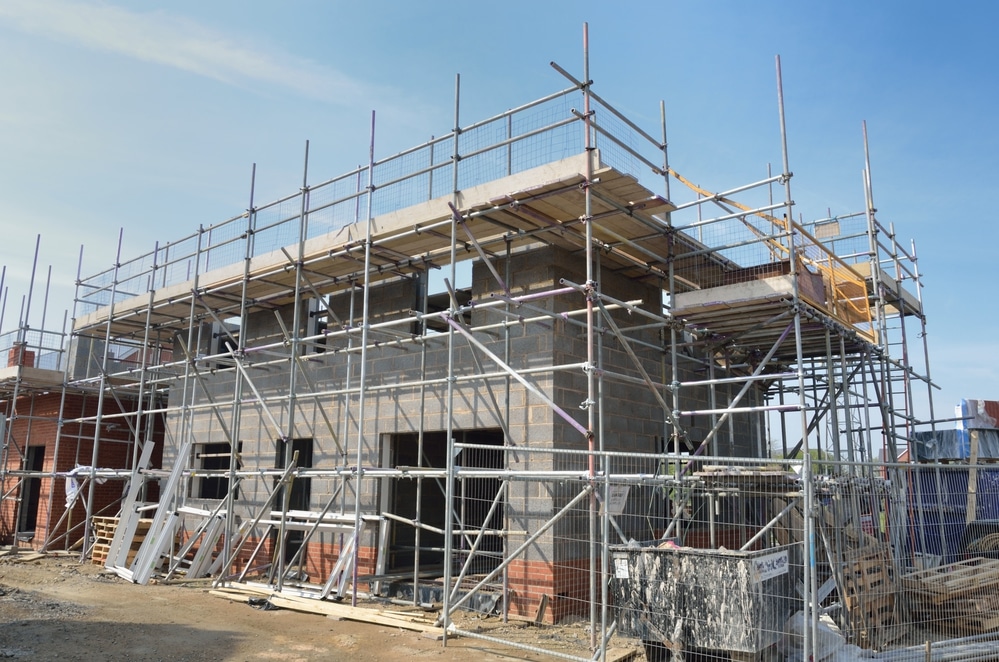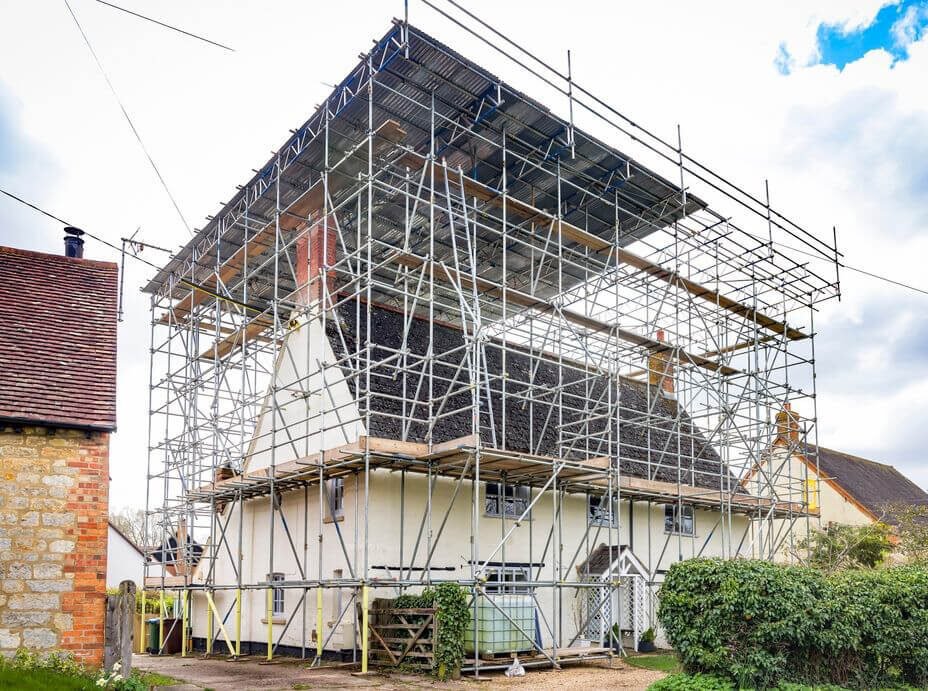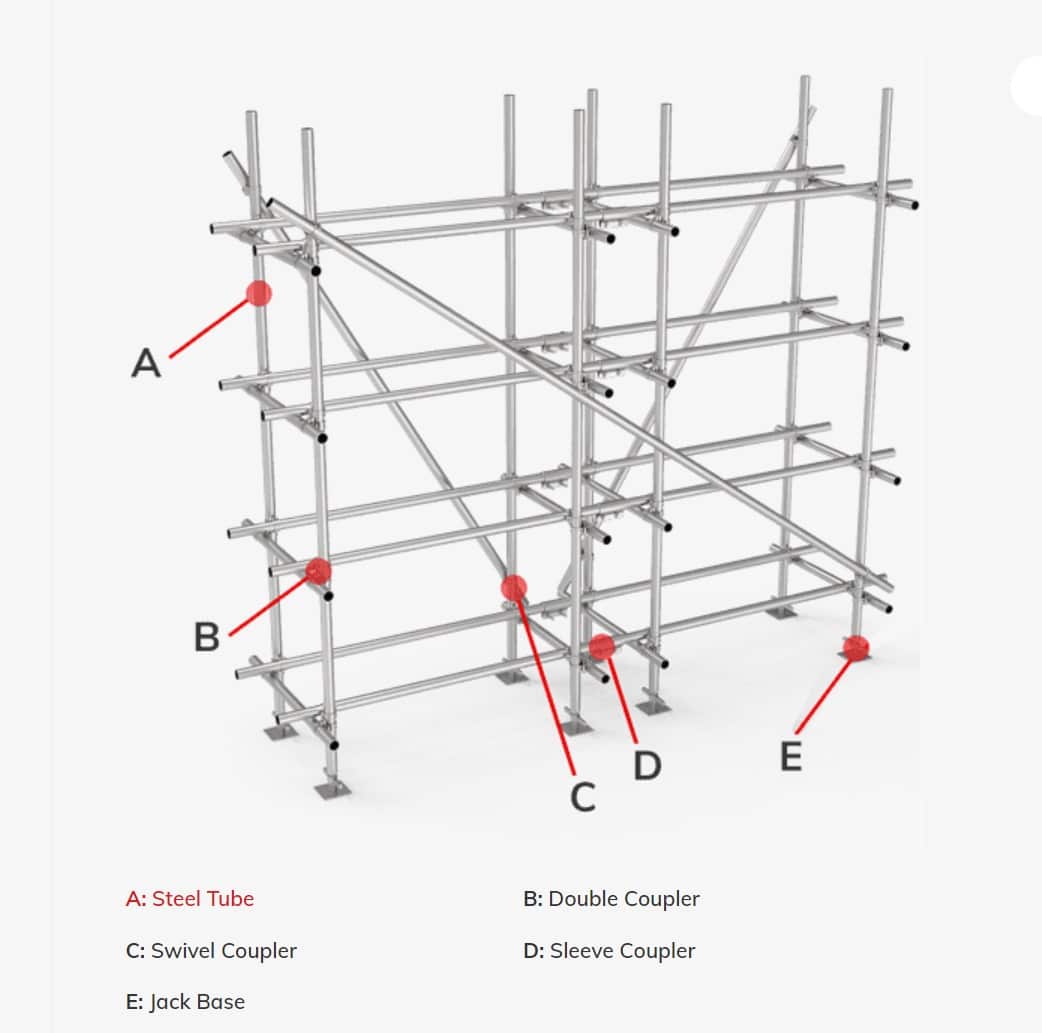Safe and Durable Scaffolding Guildford for Your Upcoming Construction Work
Safe and Durable Scaffolding Guildford for Your Upcoming Construction Work
Blog Article
Exploring the Different Kinds of Scaffolding Made Use Of in Construction Projects
The building industry depends greatly on different kinds of scaffolding to satisfy particular project needs, each offering unique benefits and applications. Typical structure scaffolding offers a tough foundation for general jobs, while suspended scaffolding is crucial for job on high-rise structures.

Standard Framework Scaffolding
Standard framework scaffolding is just one of one of the most extensively utilized methods in the construction industry as a result of its toughness and flexibility. This system includes vertical and horizontal structures that are constructed to create a secure system for products and employees. The primary components include vertical blog posts, straight journals, and diagonal braces, which together give a strong framework that can sustain considerable loads.
One of the vital advantages of standard framework scaffolding is its flexibility to various construction projects, varying from domestic structures to huge commercial frameworks. The modular layout enables very easy setting up and disassembly, making it efficient for both temporary and long-term projects. Furthermore, the system can be tailored in height and width, fitting various building designs and site problems.
Security is extremely important in scaffolding applications, and standard structure systems are equipped with guardrails and toe boards to stop falls and make sure employee protection. Regular evaluations and adherence to safety laws are essential in preserving the stability of the scaffold (Scaffolding). Generally, traditional frame scaffolding stays an essential choice in the building sector, supplying a reliable system for labor and improving overall project performance

Suspended Scaffolding
Put on hold scaffolding supplies a special option for building and construction projects that call for access to raised surface areas, especially in situations where typical framework scaffolding may be not practical. This kind of scaffolding is usually put on hold from the roof or top levels of a framework, making use of a system of platforms, ropes, and pulleys to develop a functioning space that can be readjusted to various heights.
Among the primary benefits of put on hold scaffolding is its adaptability. It can be quickly rearranged or lowered to suit modifications in building demands, making it suitable for tasks such as window installation, façade job, and upkeep on skyscrapers. In addition, the minimal footprint of suspended scaffolding permits for better usage of ground room in metropolitan environments, where area is often restricted.
Safety is a critical consideration in making use of put on hold scaffolding. Appropriate rigging and securing systems must be employed to make sure security and prevent mishaps. Operators needs to additionally be trained in the risk-free usage of this tools. Overall, put on hold scaffolding offers a reliable and reliable service for accessing hard-to-reach locations in different building and construction situations, improving both performance and safety and security on website.
System Scaffolding
System scaffolding, usually regarded as a modern solution in the scaffolding industry, includes pre-engineered parts that can be promptly assembled and adapted for numerous building and construction jobs. Scaffolding. This type of scaffolding is identified by its modular layout, which permits adaptability and performance on work websites, accommodating different heights and architectural demands
Commonly made from high-strength steel or light weight aluminum, system scaffolding provides enhanced durability and stability. The parts include upright blog posts, horizontal journals, and diagonal dental braces, which interconnect firmly, making sure a robust structure. The layout usually integrates standardized installations, simplifying setting up and disassembly processes, thereby decreasing labor time and costs.

Rolling Scaffolding
Rolling scaffolding is scaffolding register a flexible option to standard set scaffolding, created for mobility and ease of usage on building and construction websites. This kind of scaffolding is composed of a system sustained by frameworks with wheels, allowing workers to easily relocate it as required. The wheelchair feature substantially improves efficiency, as it decreases downtime associated with putting together and disassembling dealt with scaffolding.
Usually created from lightweight products such as light weight aluminum or steel, rolling scaffolding uses a strong yet portable solution for projects calling for frequent repositioning - Scaffolding. It is specifically helpful in tasks such as painting, drywall installment, and electrical job, where accessibility to different heights and areas is needed
Safety is critical in rolling scaffolding design, with features such as securing wheels to avoid unplanned motion when being used, and guardrails to secure employees from drops. Additionally, several models are flexible in height, accommodating different project needs.
Cantilever Scaffolding

The style of cantilever scaffolding normally includes utilizing brackets or arms anchored to a structure or structure, making it possible for the system to expand exterior safely. Safety and security is paramount; hence, these scaffolds have to be crafted to endure various tons and environmental conditions. Regular inspection and upkeep are vital to guarantee structural honesty and employee safety.
Cantilever scaffolding is preferred for its adaptability and effective use room, making it a preferred selection in metropolitan environments where room restraints prevail. It assists in simpler accessibility to high elevations, inevitably contributing to the general efficiency of building and construction projects. Similar to all scaffolding types, correct training and adherence to safety criteria are important for workers making use of cantilever scaffolding.
Final Thought
Standard structure scaffolding gives stability, while put on hold scaffolding uses convenience for raised tasks. System scaffolding helps with fast setting up, and rolling scaffolding improves wheelchair for differing work environments.
Conventional framework scaffolding offers a tough foundation for general jobs, while put on hold scaffolding is crucial for job on skyscraper frameworks.Rolling scaffolding is a flexible option to traditional set scaffolding, made for flexibility and simplicity of usage on building and construction websites. As with all scaffolding types, appropriate training and adherence to safety criteria are essential for employees utilizing cantilever scaffolding.
Standard structure scaffolding supplies security, while suspended scaffolding offers versatility for elevated jobs. System scaffolding assists in quick assembly, and rolling scaffolding improves wheelchair for varying work environments.
Report this page